You know that feeling when someone dumps you, ghosts you, and then suddenly shows up months later like nothing happened? While it’s always tempting to be the bigger person, there are times you just need to put it in the back pocket.
That’s basically what happened here, except instead of a messy breakup, it was a job layoff that wasn’t quite what it seemed. Today’s Original Poster (OP) was let go under the guise of needing someone “more qualified,” until one day, their ex-boss slid into their messages to ask for a 2-step verification code to access a system they were locked out of. Talk about nerve.
More info: Reddit
There’s this saying that says burning bridges just might leave you stranded on the wrong side of the river, and yes, this is an example

Image credits: tsyhun / Freepik (not the actual photo)
The author was laid off from their job after being told the company needed someone with more expertise, and the boss completely avoided them
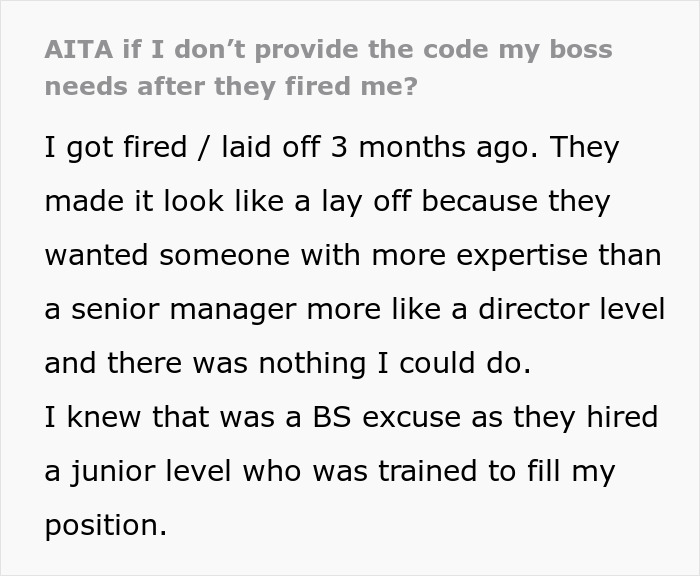
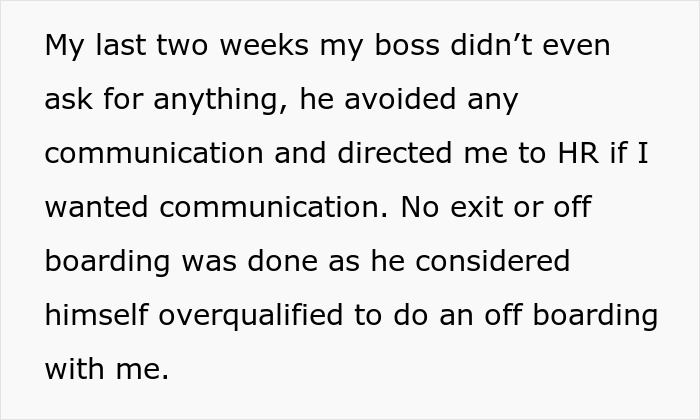
Image credits: Prejudice-Much

Image credits: rawpixel.com / Freepik (not the actual photo)
They would eventually find out someone who had even less experience was hired in their place
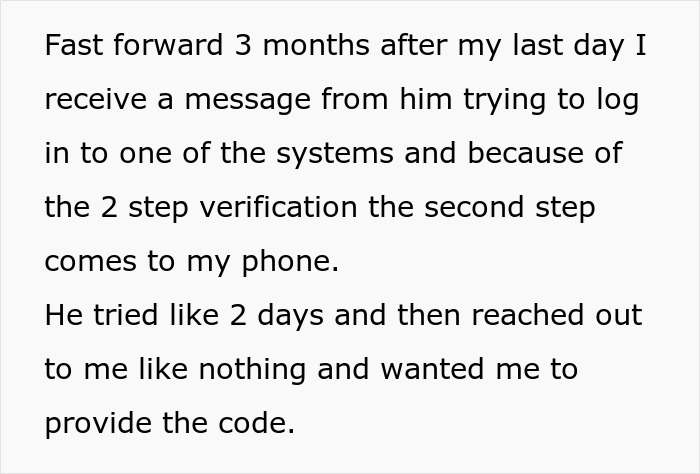

Image credits: Prejudice-Much

Image credits: freepik / Freepik (not the actual photo)
Months after they were laid off, they got a notification that the boss was trying to log into the system, which was requesting a code
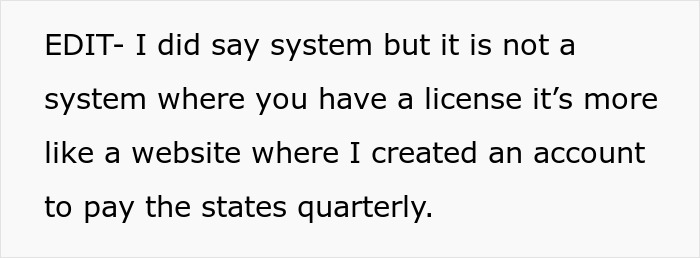

Image credits: Prejudice-Much
The boss eventually reached out to the author and demanded the code, which they refused to give
The OP was laid off three months prior. Actually, they were told their role required someone with director-level experience, only to later find out a junior hire was trained to take over instead.
However, what had made it so frustrating for the OP was that instead of a proper offboarding process, the manager completely avoided them. No handover, no final instructions. Just radio silence.
One day, after three months of no contact, they received a notification that the boss was trying to log into one of the systems. Unfortunately, the two-step authentication could only be done through the OP’s phone, so it was interesting for them to see their ex-boss keep trying to log into the system for two days with their username and password.
Finally, the boss had no choice but to reach out. They acted as if nothing had happened and asked them to provide the code, which OP refused to give.

Image credits: drobotdean / Freepik (not the actual photo)
To better understand the complexities of layoffs and firings, Bored Panda reached out to Dara Faronbi, an HR expert who shared valuable insights into how companies handle these situations and the risks involved when they don’t do it properly. When asked about how common it is for companies to disguise a firing as a layoff, she explained that while it’s not unheard of, it’s not a frequent practice and shouldn’t be.
“Layoffs often signal financial struggles or ineffective workforce planning, which can reflect poorly on a company,” she noted. In contrast, firings require proper documentation, making them harder to mask as layoffs. She explained that more often, companies encourage voluntary resignations for performance-based issues rather than outright terminations.
The conversation then turned to the importance of a proper offboarding process, something that can protect both the company and the departing employee. Faronbi stressed that failing to handle offboarding correctly can open the door to “legal drama.” “Keeping thorough records is essential because if an ex-employee makes claims, the company can defend themselves,” she explained.
She emphasized that poor documentation can also create issues when HR needs to provide references for future employers, before adding that layoffs should be managed with tact to prevent hostility. While employers aren’t legally required to disclose reasons for termination, Faronbi emphasized that transparency helps ease tensions and avoid backlash.
We also asked whether former employees should assist their previous employers after being let go, especially in cases like this one, where access to company accounts was still active. “Employers need to correctly assume that fired employees won’t be willing to help,” she joked, adding that it’s unrealistic to expect cooperation from someone who has been let go.
The bigger issue, however, lies in how HR handles access to company systems, which all falls back to the importance of proper offboarding. “No employee should leave while still having access to company accounts, whether they resigned voluntarily or were laid off,” she warned. Removing access to emails, passwords, and internal systems is crucial to preventing risks like data breaches, theft, or impersonation.
Netizens expressed their frustration with employers who mishandle layoffs and make unreasonable demands on former employees, pointing out that once the employee has left, their obligations are finished. Others also mentioned that these situations are often rooted in poor management decisions and corporate negligence.
What do you think about this situation? Do you think employers should still be able to reach out for help after an employee has left? We would love to hear your thoughts!
Netizens insisted that they were not wrong for refusing to give the code, given the manner in which they had been laid off
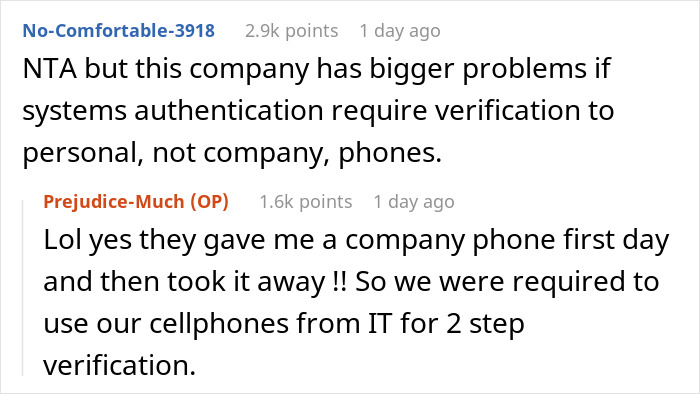
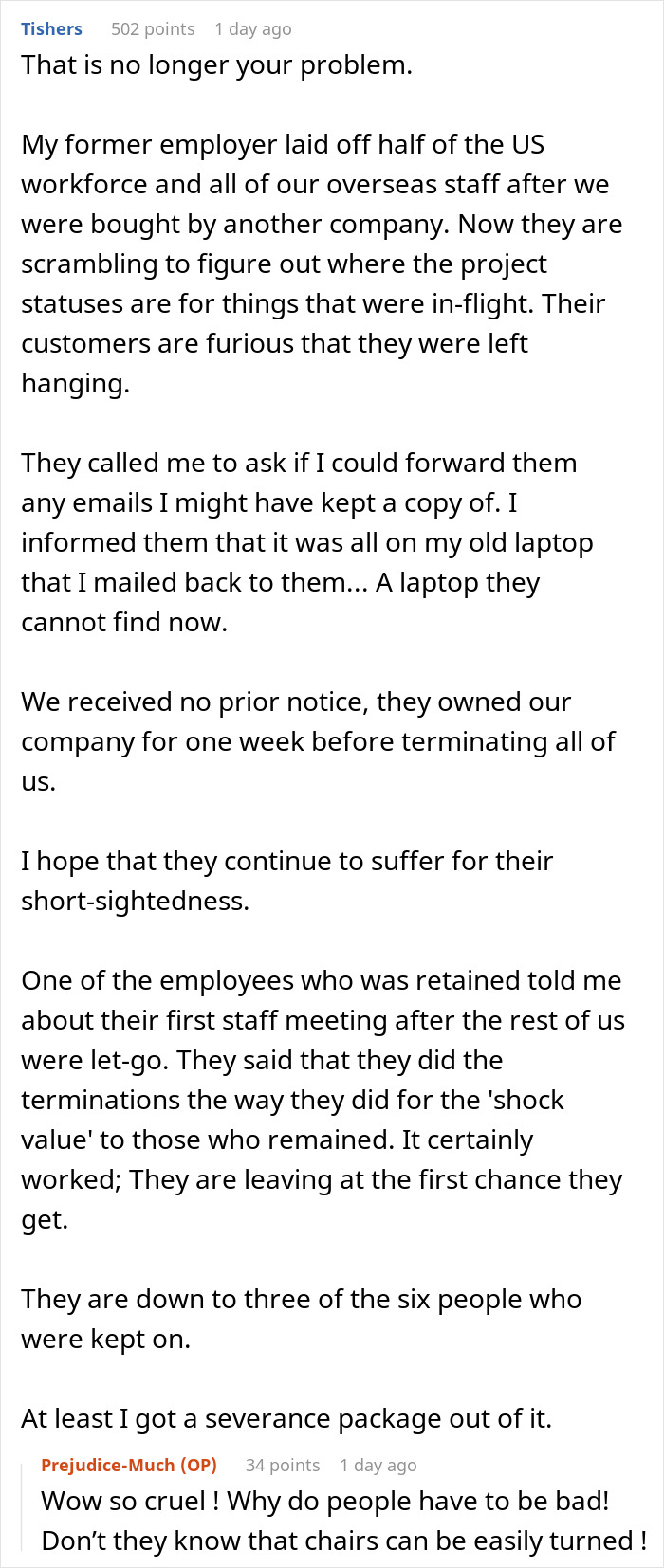

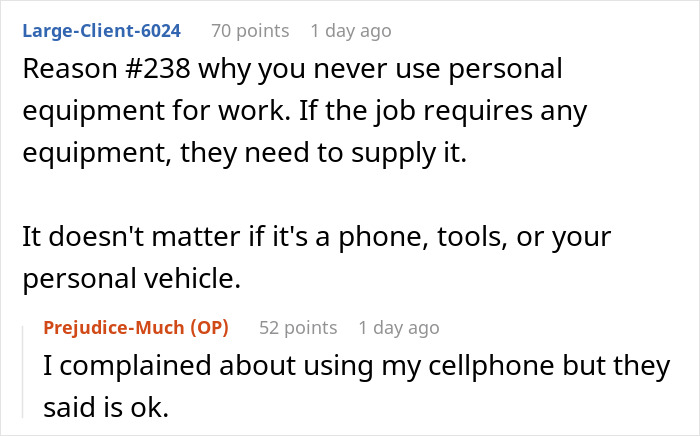
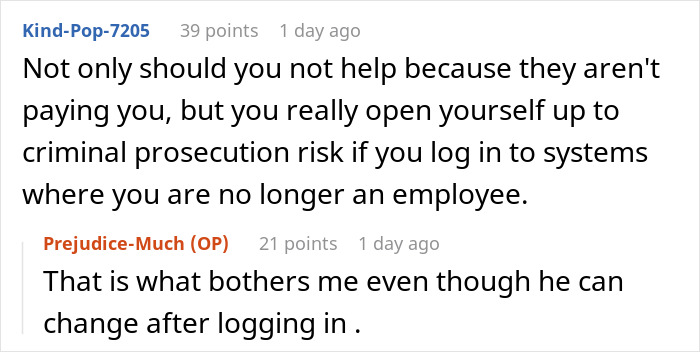


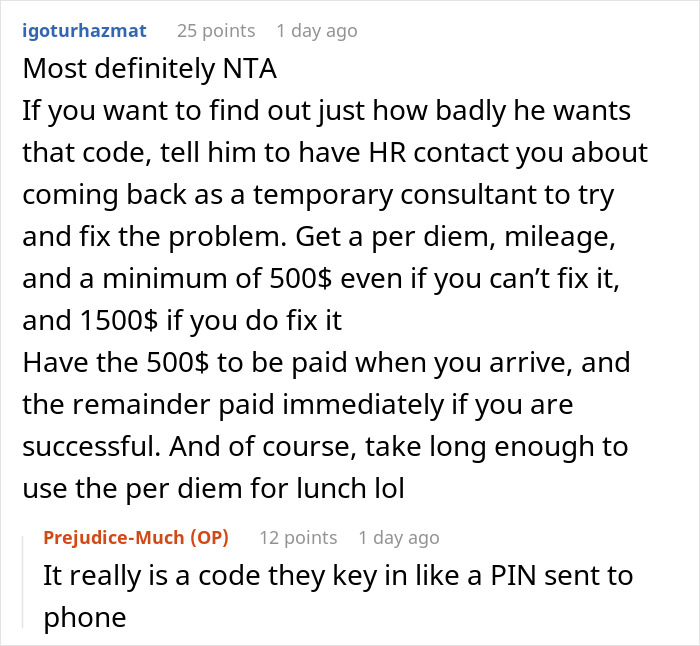
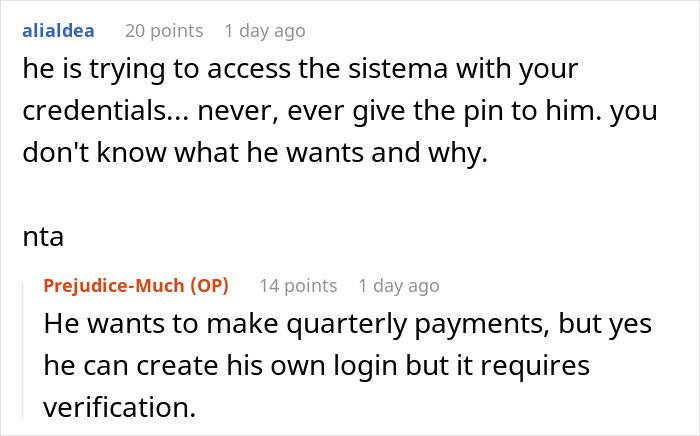


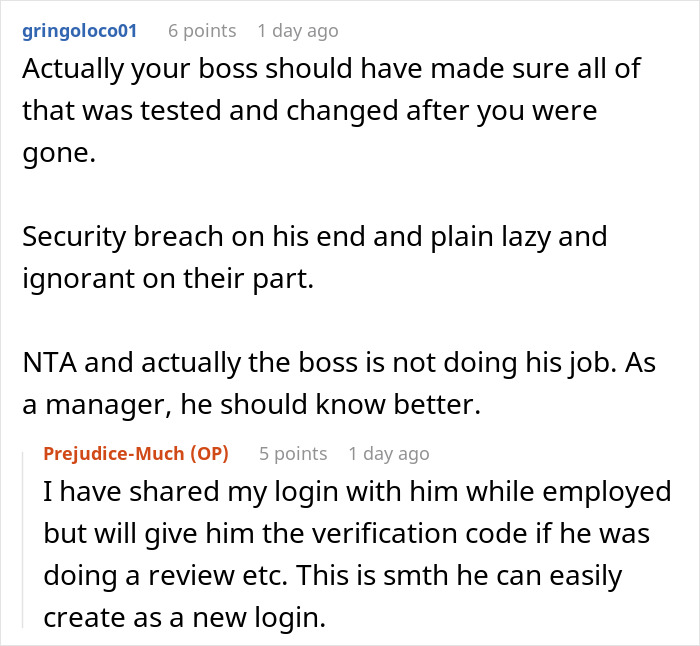

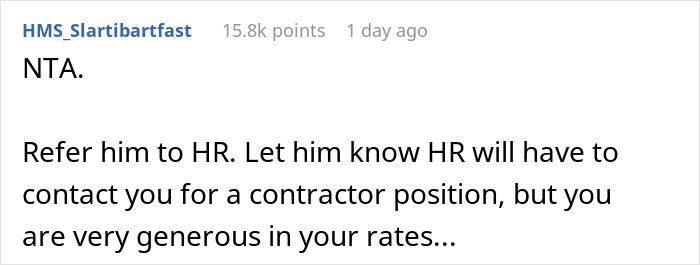
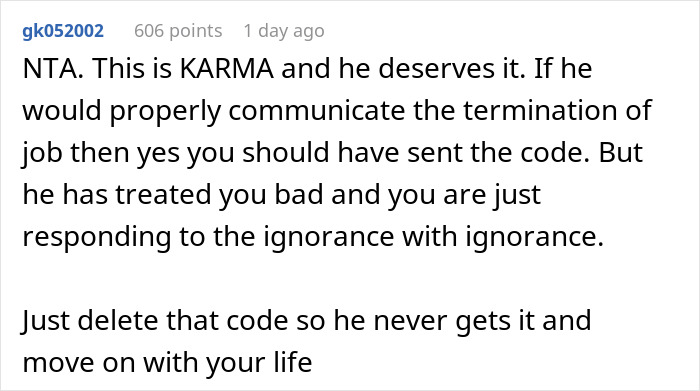
The post Employer Deceives Worker About Layoff, Hires Cheaper Replacement, Then Begs For Assistance first appeared on Bored Panda.
from Bored Panda https://ift.tt/0plVMJN
via IFTTT source site : boredpanda